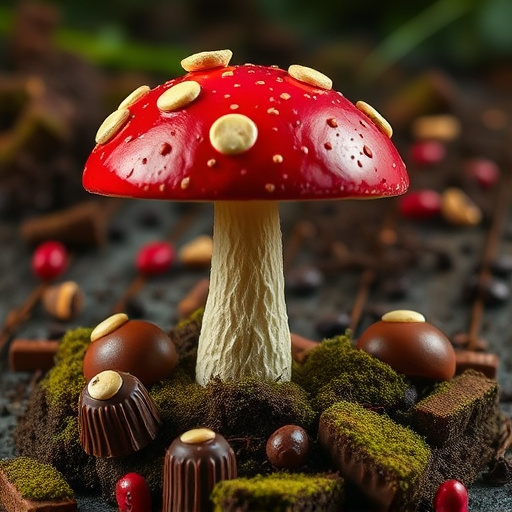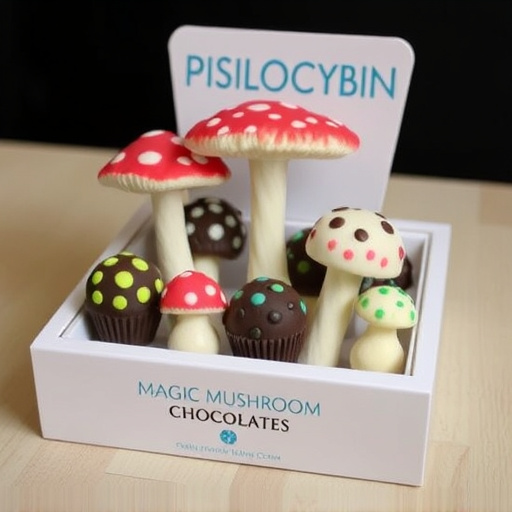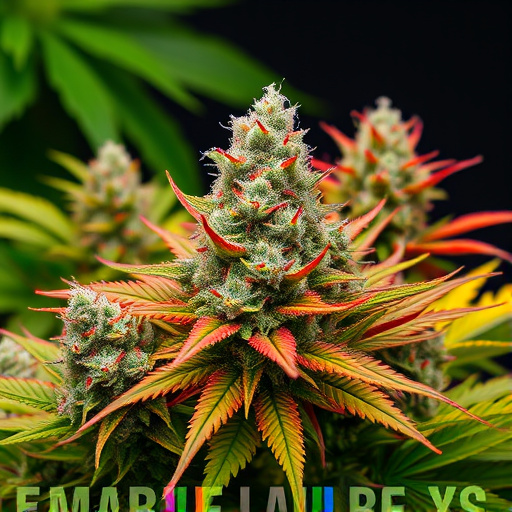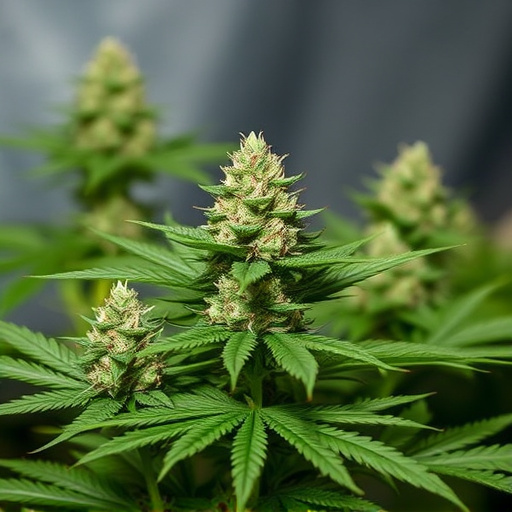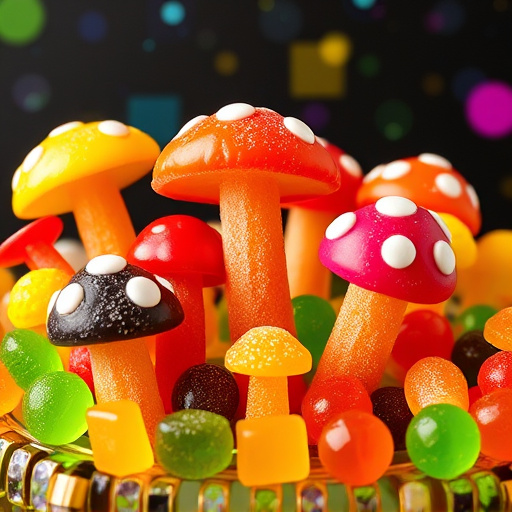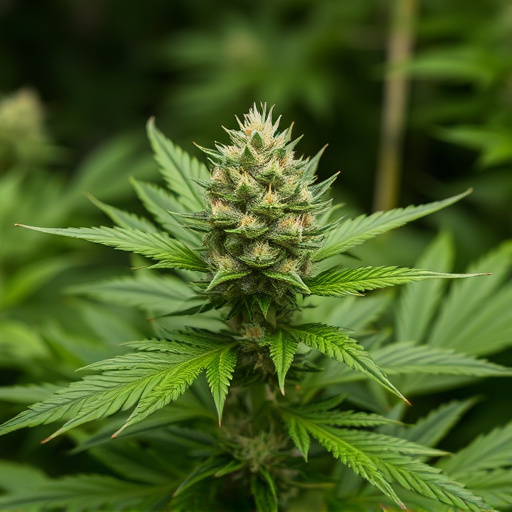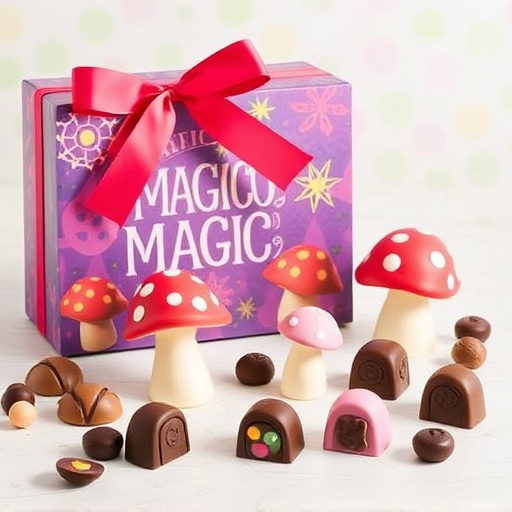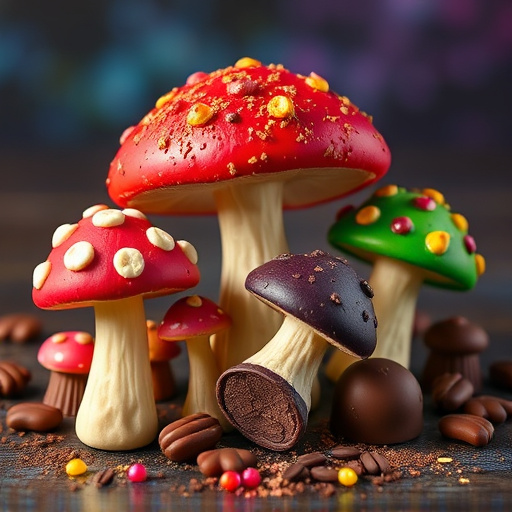The legal status of magic mushroom chocolates is a globally complex issue due to conflicting perceptions and varying regulations regarding psilocybin mushrooms and chocolate. While some regions have decriminalized or legalized psilocybin, incorporating it into edible forms like chocolates creates a legal gray area. Manufacturers must balance consumer safety, misuse prevention, and adherence to evolving laws, leading to uncertainty in the market. A coherent global regulatory framework is needed to reconcile public safety with innovation, as current disparities create challenges for stakeholders and consumers.
“Unveiling the World of Vegan Magic Mushroom Chocolates: Navigating the Legal Landscape and Exploring Delicious Options. The unique fusion of functional mushrooms and chocolate has sparked curiosity globally, but understanding the legal status of magic mushroom chocolates varies by region. This article delves into the regulatory landscape, dissecting the challenges in standardizing laws due to differing public perceptions and scientific interpretations. We also uncover a vibrant market of vegan offerings, analyze popular brands, and explore health and safety considerations for this burgeoning trend, emphasizing consumer awareness.”
- The Legal Landscape of Magic Mushroom Chocolates
- – Exploring the regulatory differences across regions
- – Discussing the challenges in standardizing laws due to varying public perceptions and scientific understanding
The Legal Landscape of Magic Mushroom Chocolates

In many countries, the legal status of magic mushroom chocolates is a complex matter due to the dual nature of their ingredients. While chocolate itself is widely legal and enjoyed worldwide, psilocybin mushrooms, the active ingredient in ‘magic’ varieties, are subject to different regulations. Some regions have decriminalized or legalized the possession and use of psilocybin for medical or personal purposes, reflecting a growing acceptance of psychedelic therapy. However, incorporating these mushrooms into edible products like chocolates presents a legal gray area.
The challenge lies in ensuring consumer safety and preventing misuse while navigating regulatory frameworks that often lag behind societal shifts. Manufacturers must carefully consider local laws to avoid legal repercussions. In some jurisdictions, adding chocolate as a carrier for psilocybin can fall under food regulations, whereas in others, it might be treated as a controlled substance due to the presence of the mushroom extract. Understanding and adhering to these legal guidelines are essential steps in bringing magical mushroom chocolates to market responsibly.
– Exploring the regulatory differences across regions

The legal status of magic mushroom chocolates varies significantly across regions, largely due to differing regulatory frameworks and public perception. In some countries and states, these products are entirely illegal, with strict laws against their production, sale, and possession. This is often driven by concerns related to safety and the potential for abuse, as psilocybin mushrooms, the main ingredient in such chocolates, are classified as controlled substances.
On the other hand, certain jurisdictions have embraced a more permissive approach. Some countries allow the legal sale of psilocybin-containing foods, including chocolates, under tightly regulated conditions. This often involves strict age restrictions and limited availability, typically through licensed retailers or research settings. These regulatory differences highlight the ongoing debate surrounding the potential therapeutic benefits versus public health risks associated with magic mushroom chocolates.
– Discussing the challenges in standardizing laws due to varying public perceptions and scientific understanding

The legal status of magic mushroom chocolates is a complex topic, heavily influenced by public perceptions and scientific understanding which vary significantly worldwide. Standardizing laws around these products proves challenging due to this disparity. What is considered safe and legally acceptable in one country might be viewed with skepticism or even criminalized in another. This variability stems from differing cultural attitudes towards psychedelics, the evolving body of scientific research on their effects, and the lack of uniform regulatory frameworks.
Regulatory bodies often struggle to keep pace with advancements in product development, leading to gaps in legislation that can create uncertainty for manufacturers and consumers alike. The challenge lies in balancing public safety with allowing innovation in a rapidly growing market. As such, the legal landscape surrounding magic mushroom chocolates remains fragmented, necessitating ongoing dialogue between stakeholders, scientists, and policymakers to establish coherent and effective regulations worldwide.
The legal status of magic mushroom chocolates remains a complex and evolving landscape, with regulatory bodies grappling with the unique challenges posed by this novel food trend. As public perceptions and scientific understanding continue to shift, harmonizing laws across regions becomes increasingly vital for a consistent consumer experience. By navigating these complexities, the industry can ensure that access to these innovative products is both safe and equitable, ultimately fostering a vibrant and regulated market for magic mushroom chocolates.
